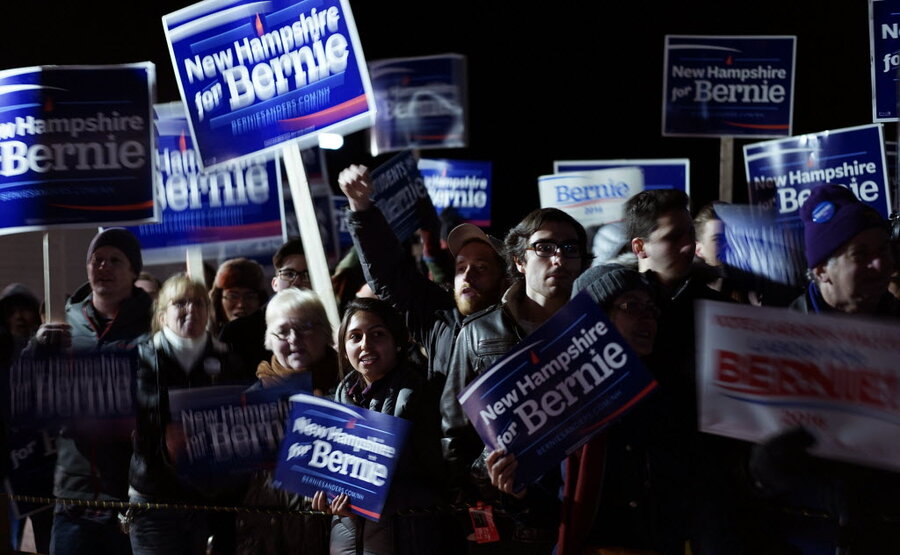Iowa’s eye-opener on what America’s youth seek
Loading...
The 2016 presidential contest in the United States still has a long way to go, but the opening shot in the Iowa caucuses was an eye-opener about one trend. Younger people, both Republican and Democrat, are bucking “the establishment.”
While Hillary Clinton as the traditional politician squeaked out a victory in Iowa, the three other top vote-getters – Bernie Sanders, Ted Cruz, and Donald Trump – were clear political outsiders, even insurgents. Their appeal to younger voters revealed a low trust in institutions among the next generation but a high desire to band together in new ways to find meaning in public life.
The clearest example was the voting demographic for Mr. Sanders. Despite being the oldest candidate, he won 84 percent of those ages 18 to 29, and 58 percent of voters ages 30 to 44, according to an NBC exit poll. These numbers were better than those of candidate Barack Obama in 2008, although Mr. Obama was able to draw a higher share of young people to get out and vote.
Like the two GOP winners, Sanders is strongly critical of the political and media establishment, even to the point of calling for a “revolution.” His far-left solutions for the economy were certainly a draw for many under 30. But he also appeals to their low regard of current government practices (the military being one exception). Most Millennials, whether Democratic or Republican, have no faith in Congress, according to a 2015 survey by Harvard University. And their trust in the media (11 percent) is at an all-time low.
This generation may seem untethered to organizations or lacking in allegiance. A 2014 Pew study found only 19 percent of Millennials agree with the statement that “generally speaking, most people can be trusted.” And nearly a third claim no religious affiliation. Yet this does not mean they are pessimistic or lazy. More than 8 out of 10 hold a belief in God and are optimistic about earning enough in the future.
Millennials, or those born between 1980 and 1995, now form the largest age cohort in the American workforce. They cannot be ignored by either political party. Only a minority of them even identify by the marketing moniker of “Millennial.” Who wants to be pinned down by stereotypes of age or similar life experiences? Yet in this latest presidential voting, they displayed a free-floating search for a wholly new consensus on politics and the economy.
In many other countries without a democracy, young people have lately taken to the streets in rebellion at the old ways of running institutions. About a quarter of humanity is over 15 and under 30. In a democracy, voting makes it easier to spot what the young seek as well as what they reject. The rest of America’s presidential campaign should be very revealing about the country’s future.







